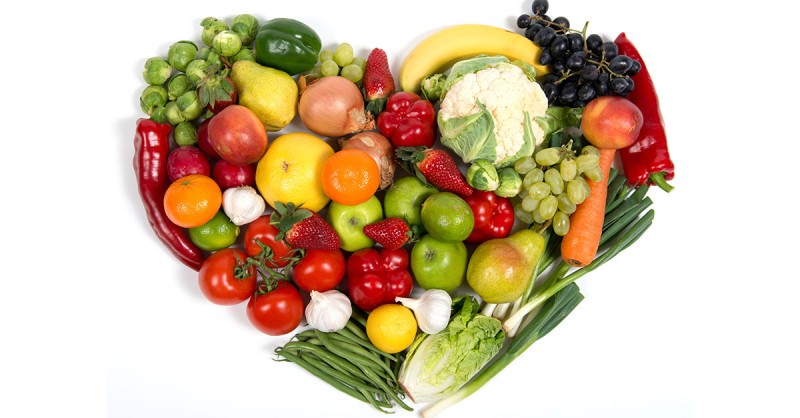
10 steps to a healthier diet
Food not only fuels our body, it is also used to form every cell in our bodies. It really makes sense then to think about our food choices and choose wisely! Here are 10 steps to help you up your game and improve your health.
-
Focus on nutrients, not calories
Food is nourishment for our body and is used as the building blocks for every cell. We need to stop seeing food as calories, sins or points and start to recognise that we literally are what we eat. Start to look at food for its nutrients and aim to get the most nutrients per calorie. For example, 100 calories of kale has a completely different nutrient profile to 100 calories from a pastry.
-
Up your fruit and veg
Veg and fruit should make up at least half your plate at every meal. This should be more veg than fruit and include green leafy’s for their high nutrient density. Think of a getting a mix of colours so your stock of veg should look like a rainbow of colours. The Irish guidelines recommend eating 5-7 servings of fruit and veg a day but the research indicates 10+ servings is optimal for health.

-
Beef up the beans
Plant based sources of protein, such as beans, peas, lentils and tofu are a much healthier option to animal protein for a variety of reasons. They have fiber, protective phytochemicals, antioxidants and plant sterols that all contribute greatly to health and longevity. Plus they don’t contain the saturated fat, cholesterol, growth hormones and antibiotics that are present in animal proteins.
-
Go nuts for nuts
Nuts and seeds tend to be overlooked at lot, possibly because of their high calorie content. However, they are full of protein, fiber, vitamins and trace minerals etc. and are a good source of essential fatty acids. If you are on a weight loss program, then limit them to 1 to 2 tablespoons a day.
-
Careful with carbs
Carbs have had a bad rap over the past few years which has caused a lot of confusion and carbophobia. So, what’s the story… well the key to understanding carbs is recognising that there is a big difference between refined carbs and unrefined carbs. Refined carbs such as white flour, have had most of the goodness removed -95% of the phytochemicals, 80-90% of the fiber and 70-80% of the vitamins and minerals. So not good! Plus, we rarely eat white flour on its own – fat, sugar and additives are usually combined with it to create products. So carbophobia should be applied to refined carbs. Unrefined carbs on the other hand, foods such as whole-grains, legumes etc, contain more of their natural nutrients so are much healthier for you. Eating these foods is beneficial to your health. So as you can see it’s about distinguishing between refined and unrefined carbs and not bulking them all together.

-
Fats
Like carbs, there has been a lot of confusion around fats. The key message is to avoid trans fatty acids at all costs and to limit saturated fats. Oils such as olive and sunflower oil should be used sparingly. They are very refined, so just like the refined carbs, they have had most of the nutrients removed and have a low nutrient density (low nutrients to high calories). With regard to essential fatty acids, most people over consume omega 6 and don’t get enough omega 3’s. Good sources of omega 3’s included flaxseeds, chia seeds, hemp seeds and walnuts.
-
Cut back on meat
It has been well documented that red meat and processed meat have a negative effect on our health. A couple of years ago the World Health Organisation stated that processed meat causes cancer and red meat probably does. Not only that those who eat red meat have been shown to die earlier, have greater rates of heart disease and diabetes.
-
Herbs and spices
Don’t underestimate the benefits from herbs and spices. Many of them have healing properties, antioxidants and phytochemicals, not to mention the great flavours they add to food.
-
Avoid sugar
Refined sugars, such as white sugar, have been linked to many health problems from high blood pressure to heart disease. One of the biggest sources of refined sugars is sugar-sweetened drinks and there is a high correlation between obesity and sweet drink intake. Sugar can also become highly addictive as it stimulates the brain in similar ways to illegal drugs. It is best to eliminate added sugars from your diet completely.
-
Drink water
Our bodies are made up of 60-70% water and we need it for the majority of chemical reactions in our bodies. Aim for 8 glasses of water a day with additional allowances for hot weather and exercise. Vary it up so you don’t get bored with water. Add lemon, cucumber, mint etc to add flavour and variety.
If you want to start putting some of these steps into action, why not join us for the upcoming Health Cooking demo with Dr. Ailis Brosnan in An Riocht on Sunday, February 25th. In the workshop you will learn how to prepare healthy, easy and delicious recipes in a fun relaxed atmosphere. For more information or to book your place click here. Places are limited so book early!
If you have any questions on this blog or other health topics please join us on Facebook.

